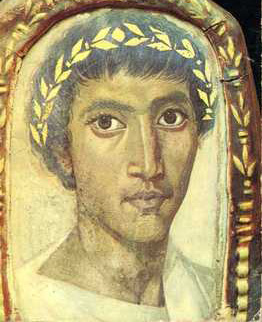I constantly find Latin errors in English books.
I am not the kind of person who pounces on typos and sends in corrections to The New Yorker. I do not particularly care to show up a writer or editor. As a woman in classics in the ’70s and ’80s, I learned to underplay my hand with insecure colleagues who were upset by my talent for classical languages, furious about their own failures, or just misogynists. Whether or not publishing is as male-dominated as classics used to be, it is a jittery business. But I am such a nerd: Latin errors leap off the page at me. I am a reincarnated Roman or something. And, I must confess, I read a lot of Latin poetry.
For eleven years I was a hipster nerd Latin teacher.
This prepared me for a life of finding Latin errors.
I prepared my students for the life, too.
- They had to diagram sentences and identify every grammatical construction in a sentence
- They had to translate.
- They had to sight-read and scan dactylic hexameter at sight.
- They had to identify figures of speech.
- They had to identify famous quotations from Virgil, Catullus, and Ovid.
- They had to memorize poetry.
My first experience in finding a Latin error in a book was in 1983 when I read Paul Fussell’s very amusing book, Class: A Guide through the American Class System. I gave my students extra credit on a quiz for identifying the error. (They were delighted.) And I wrote a letter to Fussell in the belief that he would want to correct the error in the paperback edition.
He wrote back saying he doubted the error would be corrected.
Latin errors do not seem to occur in books published, say, before 1960. After that the errors proliferate. One of my favorite books In 2009 was A. S. Byatt’s brilliant novel, The Children’s Book, (Vintage, the UK edition). You guessed it, I found an error.
Gratias tibi agimus, omnipotens Deus, pro his et omnis donis tuis. (“We thank you, all-powerful God, for these and all your gifts.”)
See the word omnis (third from the end)? That ending should be -ibus, not –is, The word is omnibus. Yes, it’s the ablative plural of a 3rd-declension adjective. I didn’t write to Byatt, but I did mention it on my old blog. Perhaps the ending was corrected for the American edition? Probably not.
I have found many errors over the years. I note them neatly in the back of the books. I just found a Latin error tonight in the Dalkey Archives edition of Aldous Huxley’s Antic Hay.
There is a typo in the quote from Catullus’s famous poem 5:
Vivamus, mea Lesbia, atque amenus
It means: “Let us live, my Lesbia, and let us love.”
In the word amenus, the “n” should be “m”: amemus (“let us love”). The ending -mus means “we” (it is a first person plural ending).
I’m sure that some of you find errors in modern books, too. What are they?


Typos, always typos – don’t they have proof readers who can spell??? (and that’s just in English!!)
LikeLike
One wonders!
LikeLike
It’s not just Latin. I speak Spanish and French and there are frequently errors in those languages in English books as well. Considering that there are millions of Spanish and French speakers alive in the world today, surely they could find someone to proofread the French and Spanish bits!
LikeLike
Oh dear, I’m not surprised! A lot of language blunders are getting through. Yes, they simply need some specialist proofreaders.
LikeLike